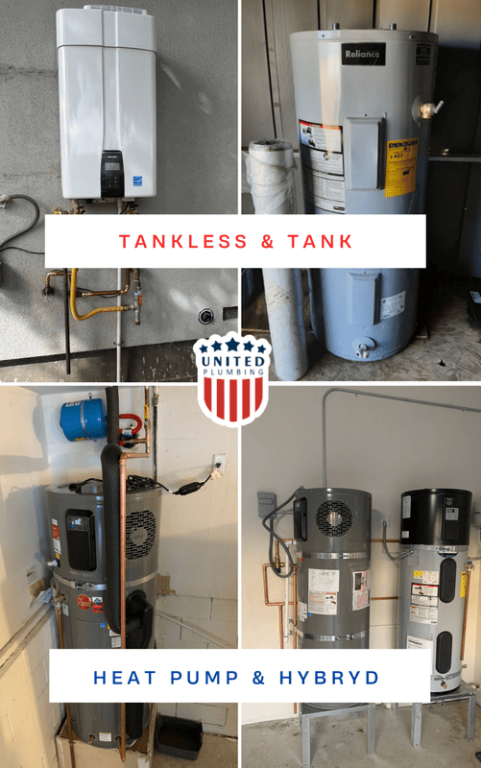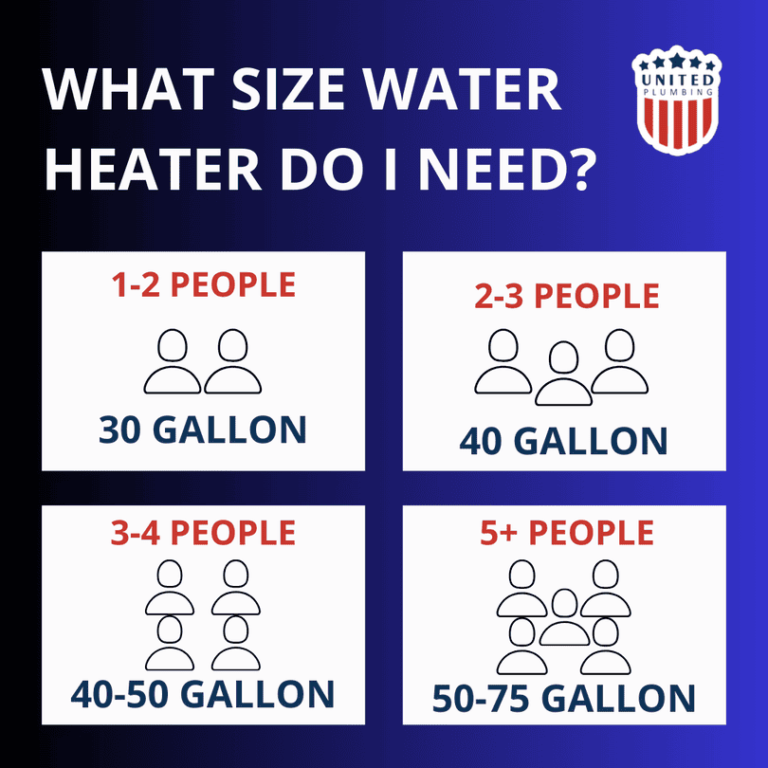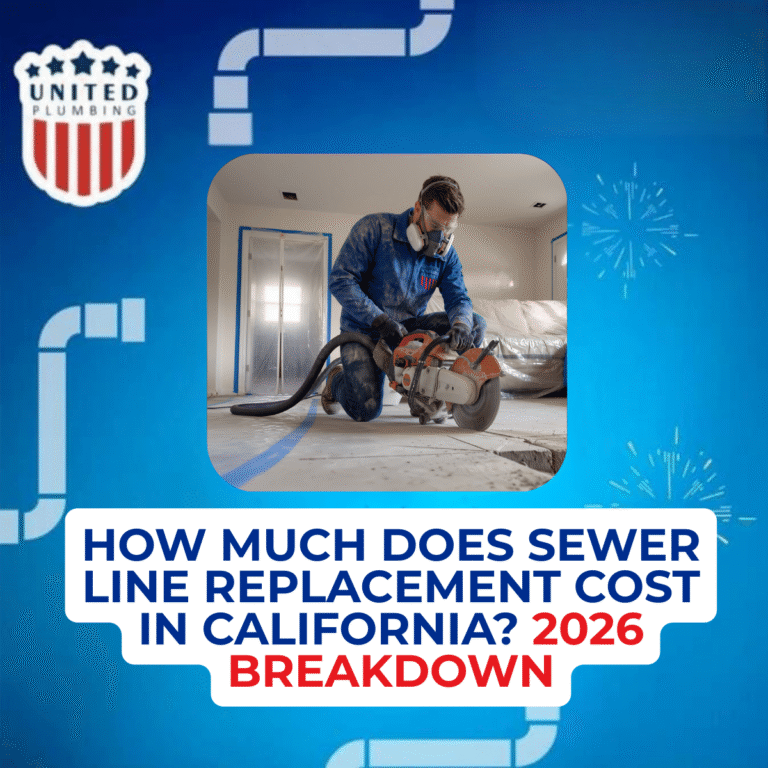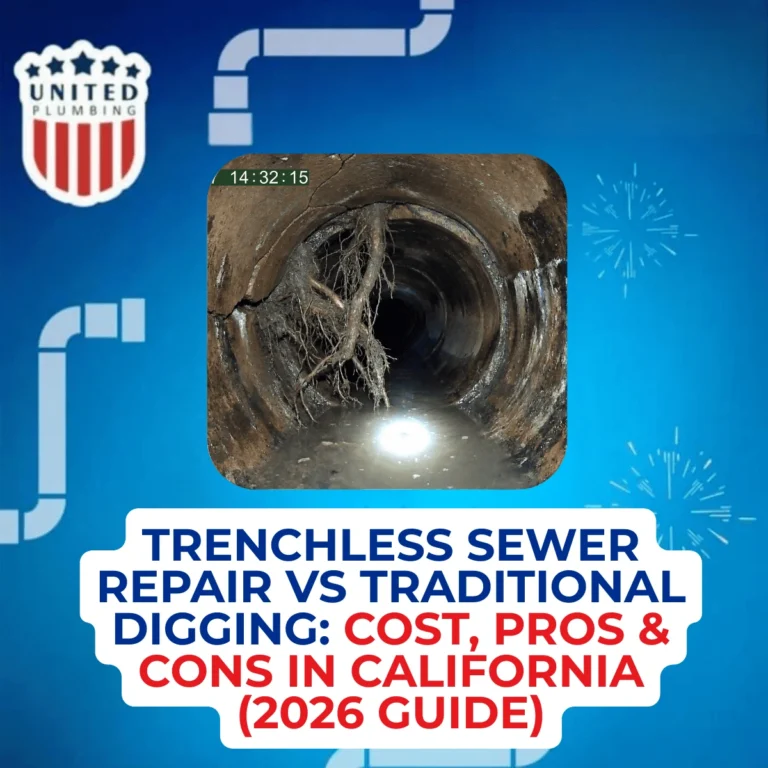FIVE-STAR TEAM WARRANTY &
SAME-DAY SERVICE
How to Choose the Right Water Heater for Your Home
Choosing a water heater is a significant decision, as it influences energy bills, hot water availability, and your home’s comfort. Understanding the types of water heaters, available water heating options, and various water heater sizes will help you make the best choice. In this article, you can learn “How to choose a water heater”.
1. Types of Water Heaters
The first step in selecting a water heater is understanding the different types available. Here are the most common types of water heaters:
- Tank Water Heaters: Typically ranging from 20 to 80 gallons. Once the tank empties, it needs time to refill and reheat, which can lead to delays in hot water supply. In some cases, government and city regulations require the installation of a water heater expansion tank.
- Tankless Water Heaters: Also known as on-demand water heaters, these units heat water as needed, providing continuous hot water without the limitations of a tank. They are compact and energy-efficient. There are two types of these water heaters: electric tankless water heater and tankless gas water heaters.
- Heat Pump Water Heaters (Hybrid): What is a heat pump water heater? These units use electricity to move heat from the air or ground to heat the water, making them highly energy-efficient. Hybrid water heater can reduce energy bills significantly over time.

2. Water Heating Options to Consider
When the question arises “How to choose a water heater”, consider the following options:
- Energy Efficiency: Water heaters come with different energy ratings, which can directly impact your utility bills. Look for models with Energy Star ratings for maximum efficiency.
- Fuel Type: Common options include natural gas, electricity, propane, and solar. Electric water heaters are often easier to install and maintain, while gas water heaters typically have lower energy costs. The availability and cost of these fuel sources in your area can impact your decision. Additionally, some regions may offer incentives or rebates for choosing energy-efficient options.
- Installation Location: The location of your water heater will influence its size and type. Smaller spaces, for instance, may benefit from a compact, tankless hot water heater, whereas homes with more space can accommodate larger tanks or hybrid models.
- Hot Water Demand: The number of bathrooms, household size, and peak hot water usage times will help determine the capacity of the water heater you need.
3. Small Water Heater vs. Large Water Heater: Finding the Right Size
Choosing the right water heater size is essential for efficiency and comfort. Here’s a quick guide to water heater sizes based on typical household needs:
- Small Water Heater (20-30 gallons): Suitable for smaller homes or apartments with 1-2 people or for specific purposes, like heating water for a guest bathroom.
- Medium-Sized Water Heater (40-50 gallons): Ideal for homes with 2-4 people, providing sufficient hot water without taking up too much space.
- Large Water Heater (55+ gallons): Designed for larger households or those with higher hot water demands, such as families with multiple bathrooms and laundry requirements.

For tankless water heater sizing depends on the flow rate (measured in gallons per minute) and the temperature rise required to meet your hot water needs. Tankless options are more compact and suitable for smaller spaces, though you may need more than one unit if your home has high hot water demands.
4. Deciding on Your New Hot Water Heater
Once you’ve assessed your hot water needs and considered the available water heating options, it’s time to decide on your new hot water heater. Here are some final factors to consider:
- Maintenance Needs: Tankless and hybrid models require less regular maintenance than tank models, but they may need professional assistance for specific components. Factor in potential maintenance costs over the heater’s lifespan.
- Warranty and Lifespan: Different types of water heaters come with various warranty options and lifespans. Tank water heaters typically last 8-12 years, while tankless models can last 20 years or more.
5 Interesting Facts About Your Water Heater
Selecting the right water heater involves understanding your household’s hot water demand, available space, energy preferences and size of hot water tank. With so many types of water heaters and water heating options, making the best choice can feel overwhelming. Now you know some points about “How to choose a water heater”. If you need help deciding which new hot water heater is right for you, don’t hesitate to reach out to us.
Our experts can guide you not only in choosing the best water heater for your needs but also assist with water heater replacement and water heater replacement cost. Information about water heater installation, explain how to flush a water heater, and address any other plumbing issues. Contact us today or look for “plumbers near me” for professional advice and reliable service!
Post views: 1293
Choosing and Maintaining a Water Heater
What is the difference between tank and tankless water heaters?
Tank water heaters store a set amount of hot water and take time to reheat when the tank empties. Tankless water heaters heat water on demand, providing unlimited hot water, saving space, and being more energy-efficient.
How often should I flush my water heater?
To maintain efficiency and prevent sediment build-up, it’s recommended to flush your water heater annually. This is especially important for areas with hard water.
When should I replace my water heater?
Most water heaters last 8-12 years. If your unit is leaking, inefficient, or unable to meet your hot water needs, it’s time for a water heater replacement.
Can I install a water heater myself?
While it’s possible for experienced DIYers, professional water heater installation is recommended to ensure safety, efficiency, and compliance with local codes.
What are the benefits of high-efficiency water heaters?
High-efficiency models reduce energy consumption, lower utility bills, and often qualify for rebates or tax credits. These include heat pump, solar, and condensing water heaters.
Latest posts

How Much Does Sewer Line Replacement Cost in California? 2026 Breakdown
In 2026, the average sewer line replacement cost in California ranges from 6,500 to 22,000 dollars. The final price...

Trenchless Sewer Repair vs Traditional Digging: Cost, Pros & Cons in California (2026 Guide)
In California, trenchless sewer repair typically costs between $6,000 and $18,000, while traditional sewer line...


If you still have questions or need advice, please leave a request and we will contact you as soon as possible
Need a plumber and got no clue where to start?
(408) 539-6936Facing a plumbing issue? Get a FREE in-person estimate and quick solutions from our skilled technicians, ensuring your home runs smoothly again!
